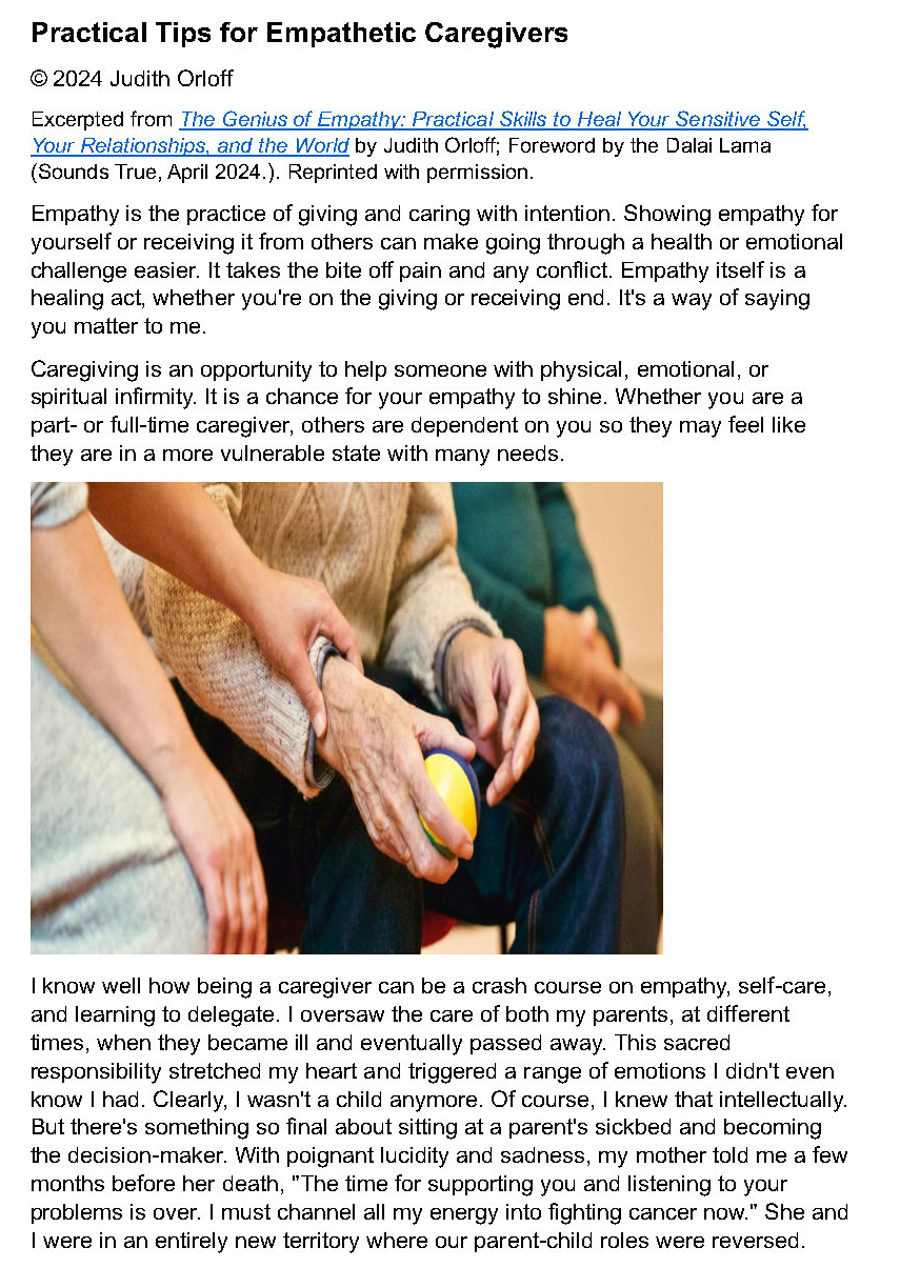
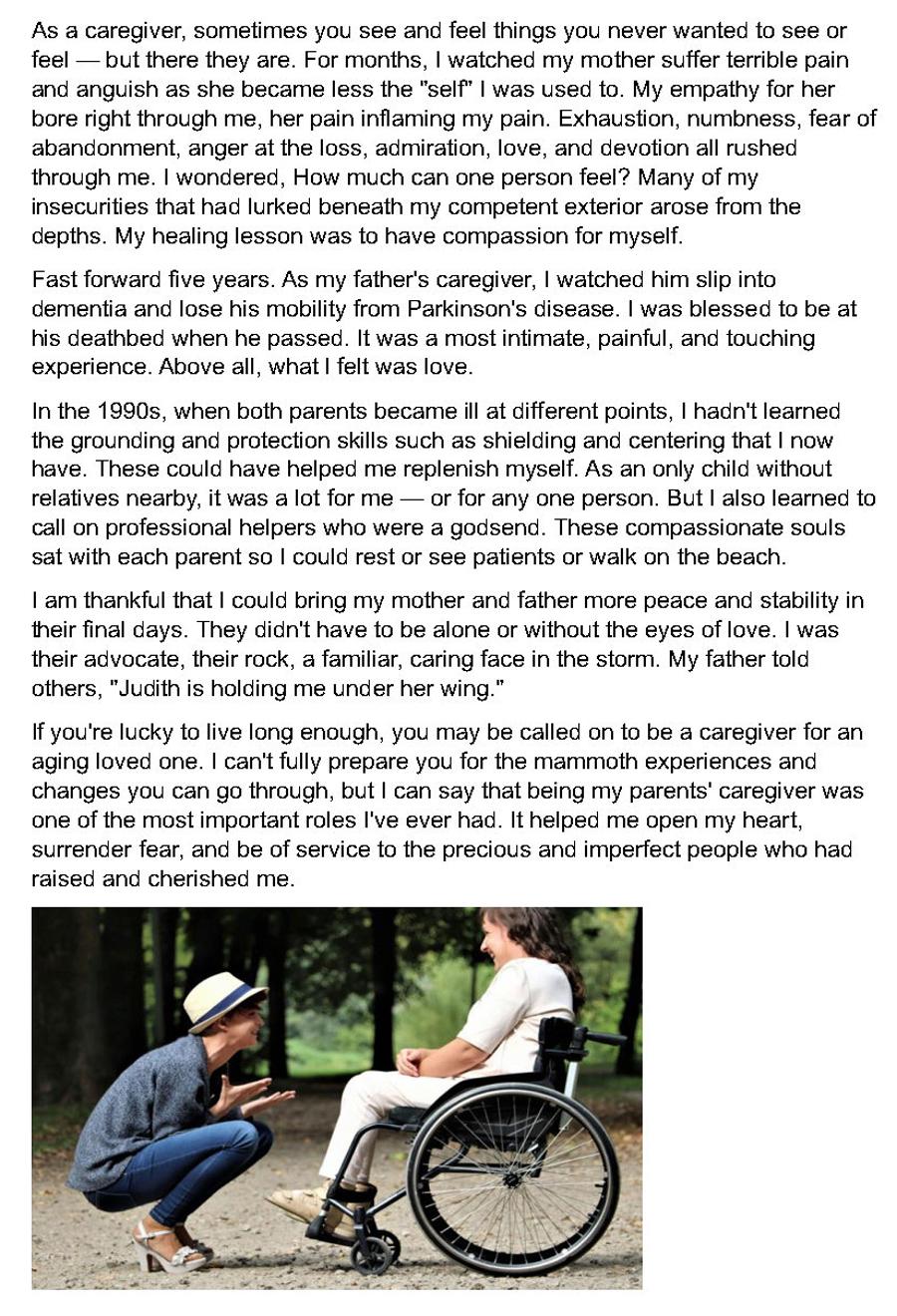
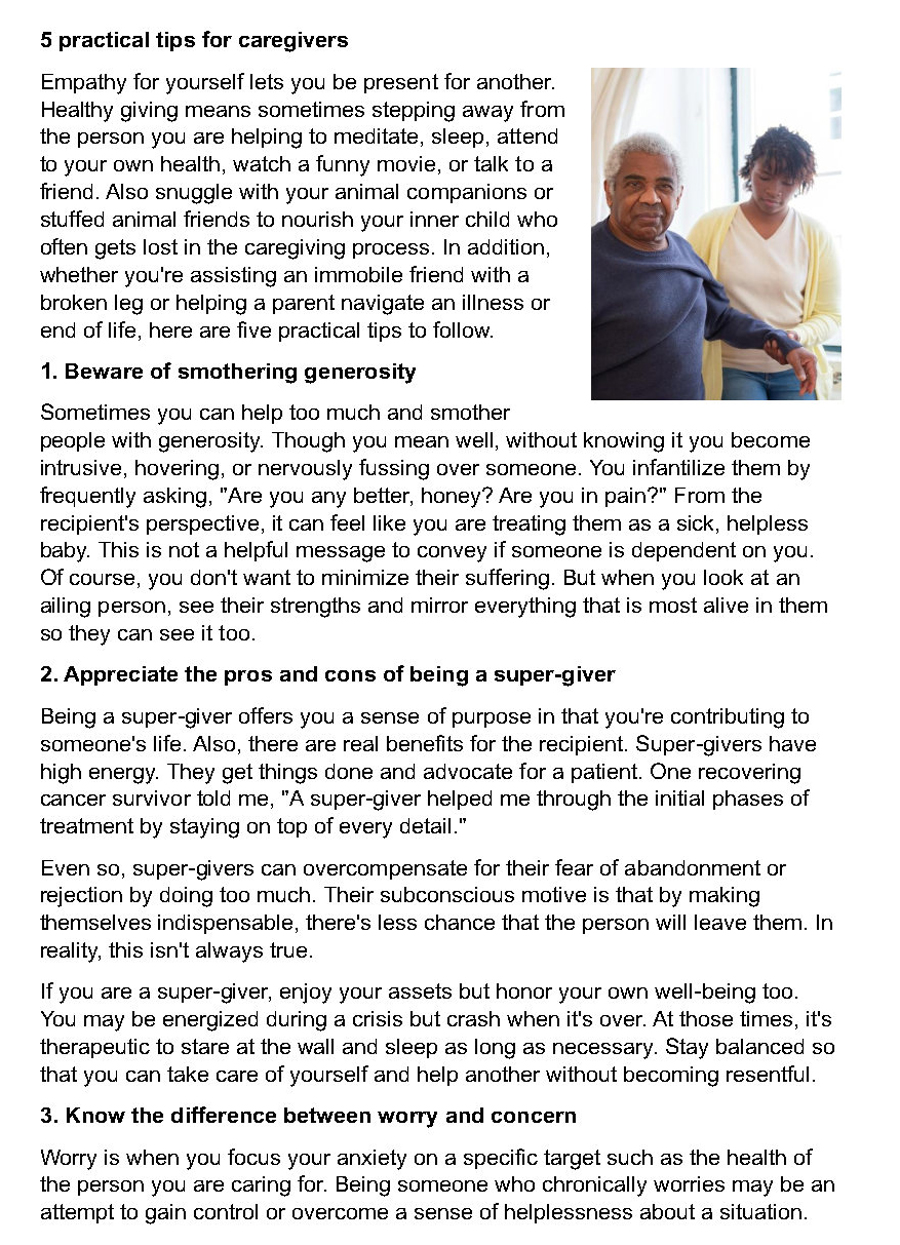
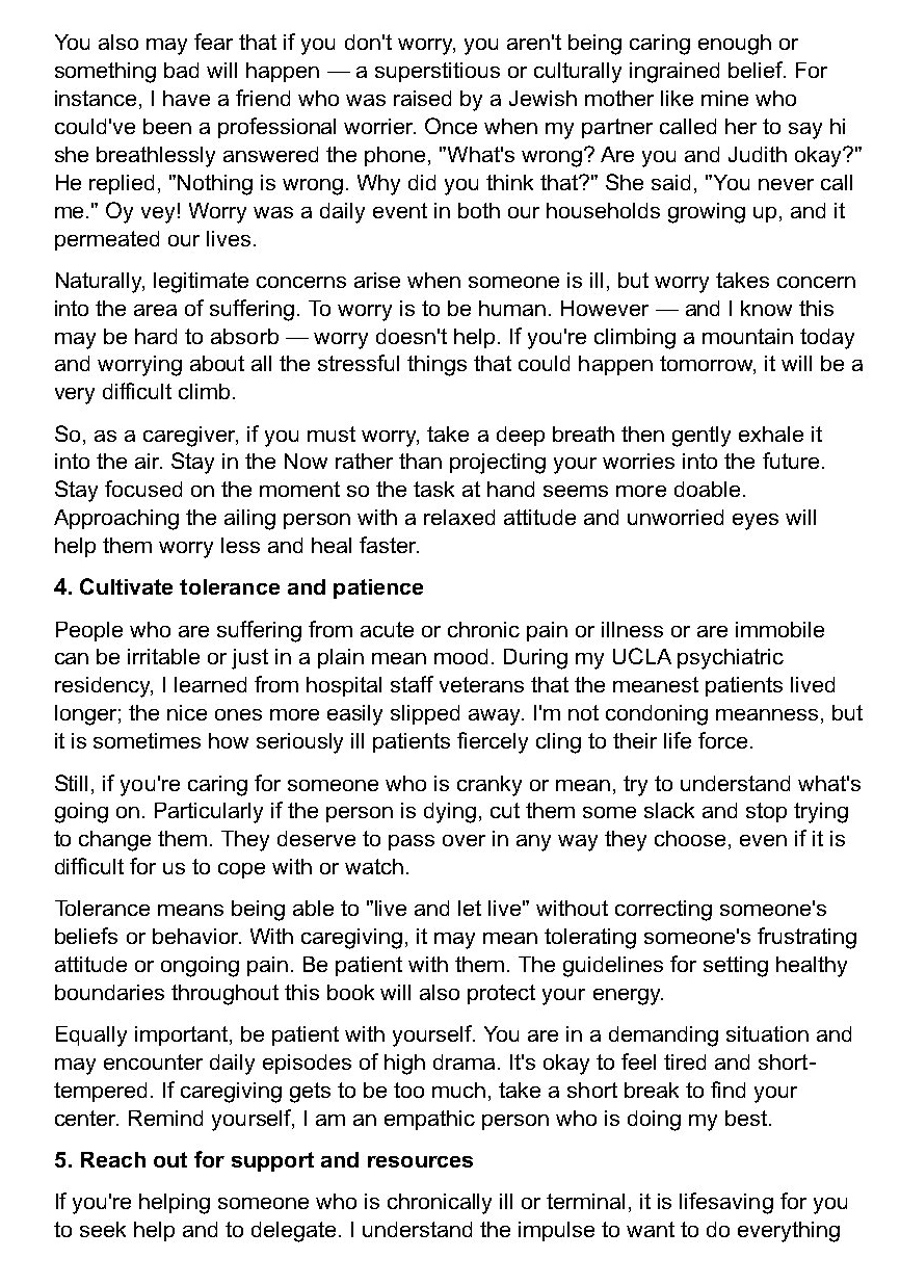
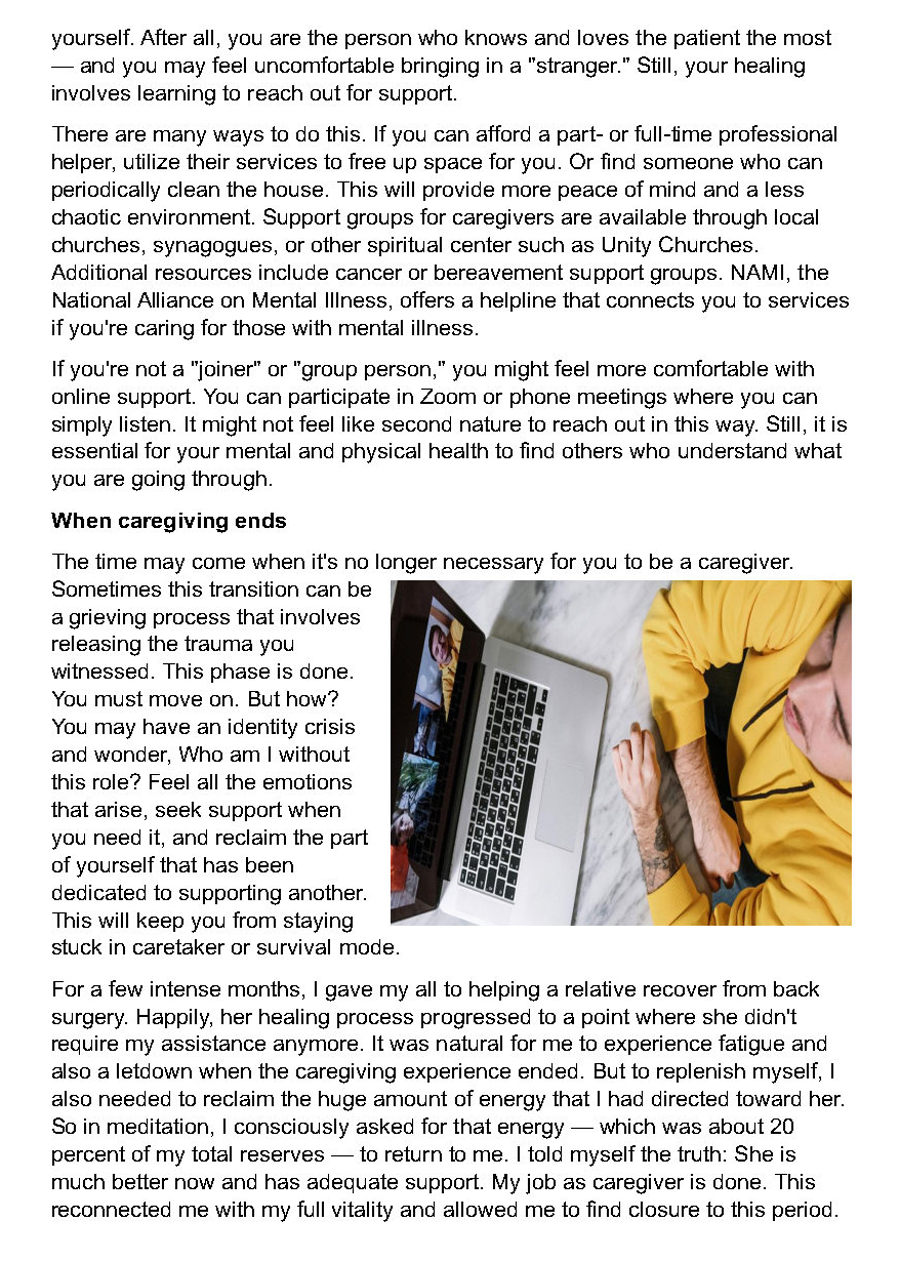
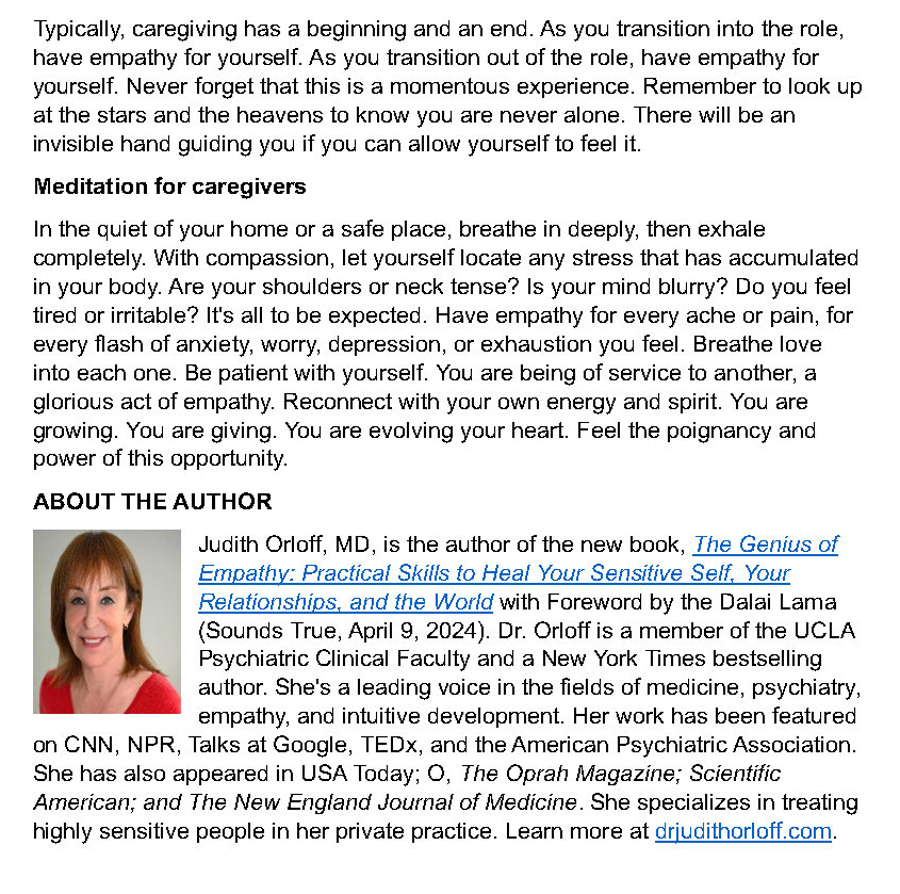
How to Empathize Without Burning Out
Like me, many sensitive people are prone to absorbing others’ emotions or physical symptoms. Too much coming at you too fast leads to the misery of sensory overload.To stay centered and prevent sensory overload, I’ve learned the importance of protecting myself so I don’t take on the distress of my patients or anyone else. Also, I try to bow out of a situation and decompress when external stimulation feels too intense.
At times, it’s okay not to be so available. To stay centered and decompress, you need to leave this world for a while and practice self-care. Give yourself that break. When being of service, consider each situation individually. Always factor in your own energy level and physical and emotional limitations to access how much you have to give. These considerations don’t make you selfish. They make you smart. Of course, there are instances when service may involve enormous sacrifice such as when you’re a caregiver, which I will discuss. Generally, though, healthy giving nurtures you too.
In my private practice many patients have shared that one of their largest blocks to empathy is a fear of being overwhelmed. It either seems too painful or unsafe to lovingly explore their own emotions, or that they risk getting burned out by other people’s problems, dramas and needs. Family, friends, or co-workers may ask more than you are prepared to give, but you don’t want to disappoint them. If you set healthy boundaries such as saying “no” or specifying “I am just able to give you this,” you may feel guilty, or fear being rejected. In my book The Genius of Empathy: Practical Skills to Heal Your Sensitive Self, Your Relationships and The World I discuss ways to avoid empathy burnout.
Empathy doesn’t have an on-off switch where you are either closed-down or maxed out. You can regulate it. When you empathize with someone you can compassionately communicate, “I care about you and this is what I can give right now.” You decide how involved you are in a situation.


